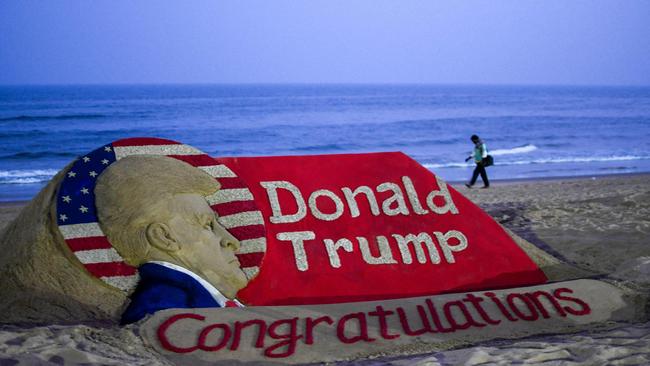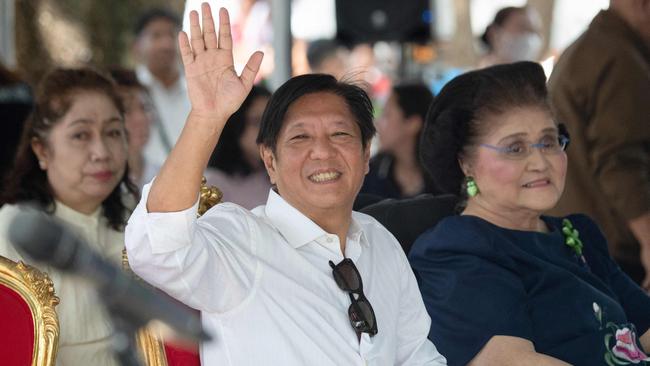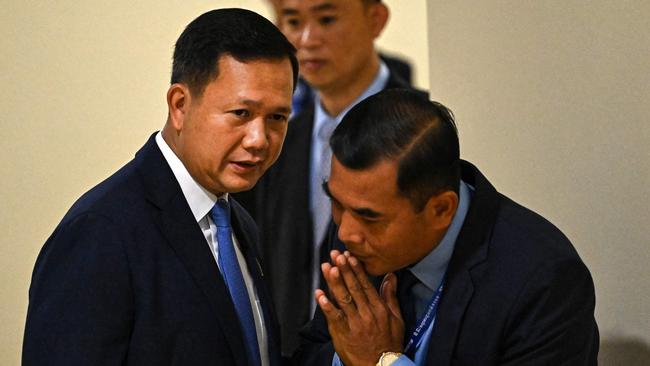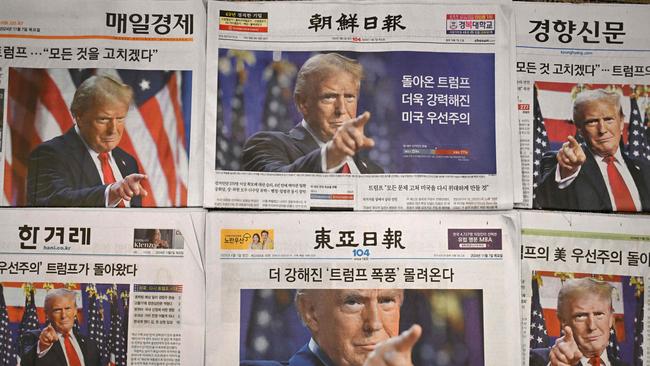Asia-Pacific leaders rush to congratulate Trump
Beneath a deluge of tributes there is also anxiety over Donald Trump’s threatened tariffs on imports into the US, demand for greater burden-sharing by regional allies, and unpredictable approach to China.

Asia-Pacific leaders have rushed to congratulate Donald Trump on his US election victory, with the Philippines’ Ferdinand Marcos Jr among the first to hail the result, declaring; “The American people have triumphed.”
Mr Marcos, whose country bears the brunt of Chinese aggression in the South China Sea and who is hosting a summit on the issue this week, wrote on X that he “personally met President-elect Trump as a young man, so I know that his robust leadership will result in a better future for all of us”.

“I am hopeful that this unshakeable alliance, tested in war and peace, will be a force for good, blazing a path of prosperity and amity in the region and on both sides of the Pacific.”
Indian Prime Minister Narendra Modi, with whom Mr Trump enjoyed good relations during his first presidency, congratulated his friend on a “spectacular victory” and expressed hopes the two countries would work closely together on technology, defence, energy and space.

Malaysia’s Anwar Ibrahim, an outspoken critic of Israel’s war on Gaza, urged Mr Trump to “reinvigorate US engagement with Southeast Asia” – a region he largely ignored during his first term – and to use America’s “considerable influence to end the devastating violence and loss of life in Palestine and Ukraine”.
Indonesian leader Prabowo Subianto, who took office only last month, hoped the two countries could build on their “immense potential for mutual benefit” and work together for “global peace and security”, while Singapore’s Lawrence Wong, who was in Jakarta on Tuesday, said he was confident the US would “continue to grow and lead globally”.
Beneath a deluge of tributes there is also anxiety over the regional economic impact of Mr Trump’s threatened 10-20 per cent tariffs on all imports into the US, his demand for greater burden-sharing by regional allies, and his unpredictable approach to China.
Asian currencies told that story within hours of Mr Trump’s declared victory on Tuesday, many of them weakening amid expectations Trump 2.0 could mean punishment for Asian trading nations.
Most leaders noted America’s vital role in the Asia-Pacific as the historic underwriter of regional security, and expressed hopes that would continue as China mounts an ongoing challenge to US global supremacy and seeks to extend influence over neighbouring states.
Thailand’s alliance with the US has waned in recent years as Bangkok has moved closer to China but recently installed Prime Minister Paetongtarn Shinawatra, daughter of former leader Thaksin Shinawatra, said she hoped to reinvigorate those ties under the Trump/Vance administration.
Cambodia too has drifted further into Beijing’s orbit, controversially leasing its former World War II-era US Naval Base Ream to the Chinese, who have since developed a deep sea port capable of harbouring warships close to the critical Malacca Strait.
Cambodian Prime Minister Hun Manet, who has faced criticism from the outgoing Biden government for human rights abuses since taking over from his father Hun Sen last year, noted Mr Trump’s re-election “comes at a most crucial time not only for the American people but also for the world at large”.

“Under your wise leadership I am confident that the indispensable US role in promoting stability, security and prosperity will be further strengthened,” he said.
Taiwan President Lai Ching-te, whose government is under constant threat from China, expressed confidence that the Taiwan-US partnership “will continue to serve as a cornerstone for regional stability”.
Japan’s newly installed Prime Minister Shigeru Ishiba, who heads a minority government since elections last month delivered a sharp rebuke to the long-dominant Liberal Democratic Party, was among the most conservative in his response, saying he respected the democratic choice of the American people and wanted to make contact with Mr Trump “as soon as possible” to bolster the two countries’ alliance.
Tokyo’s muted reaction could reflect fears that Mr Trump may again pressure the US Federal Reserve to manipulate interest rates which could put Asia’s largest dollar holders – Japan and China – at risk.
Both Japan and South Korea also worry Mr Trump could extend his threatened 100 per cent levy on Mexican-manufactured car imports to their own industries. While South Korean President Yoon Suk-yeol insisted his country’s alliance with the US would “shine brighter” under Trump, there is trepidation in Seoul.






To join the conversation, please log in. Don't have an account? Register
Join the conversation, you are commenting as Logout